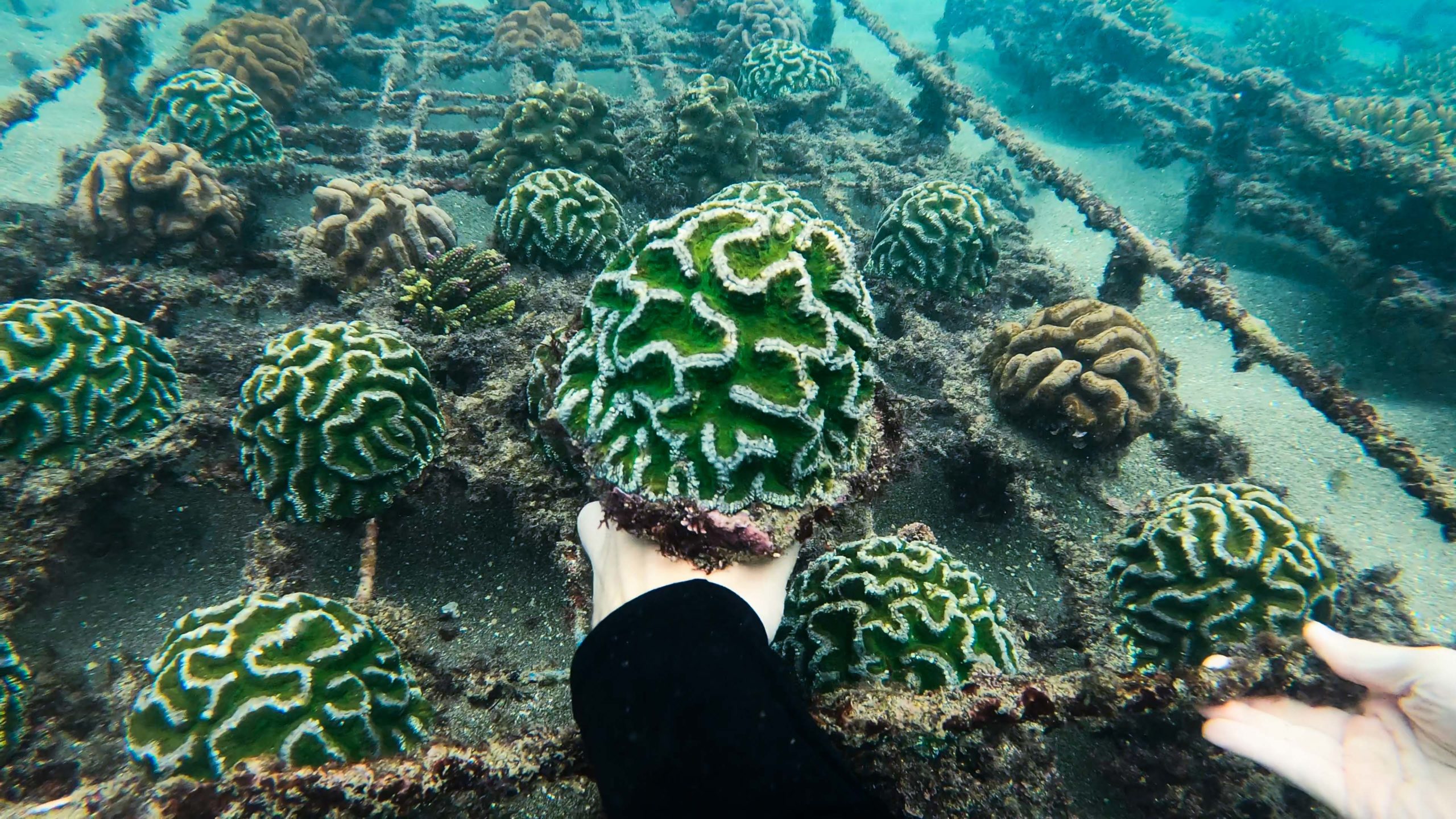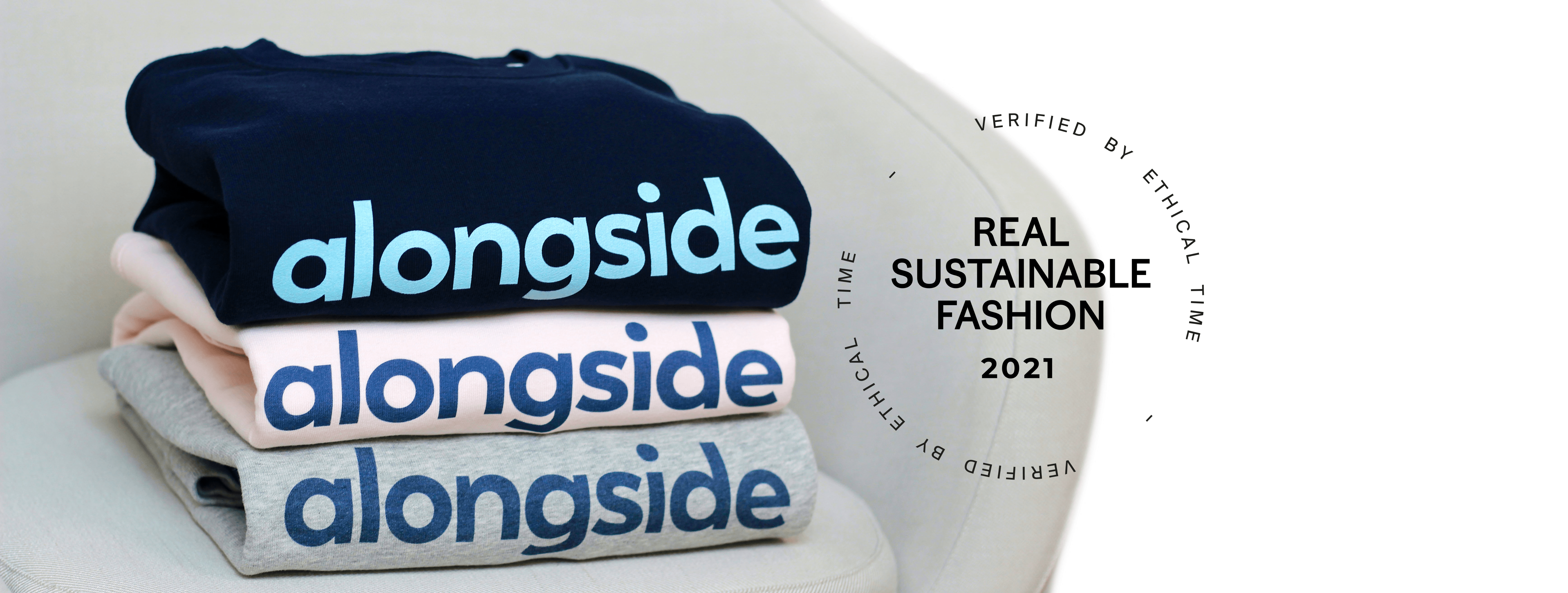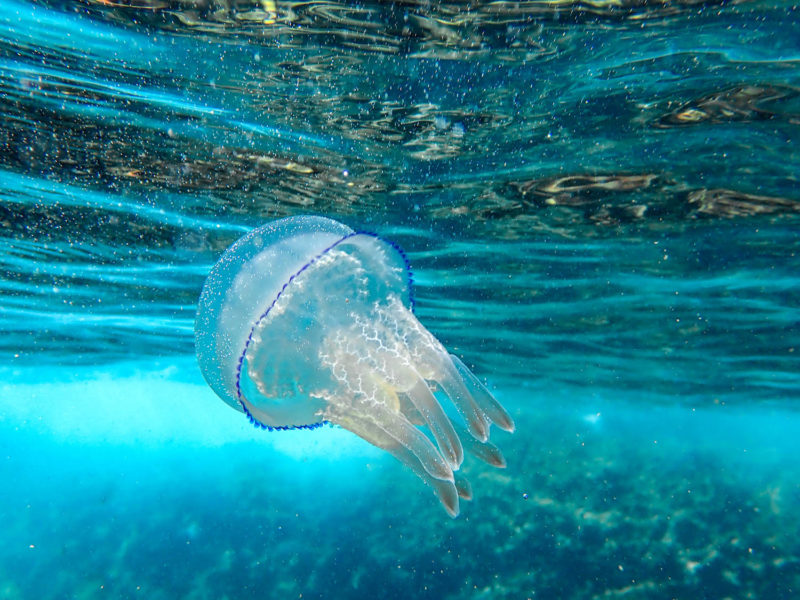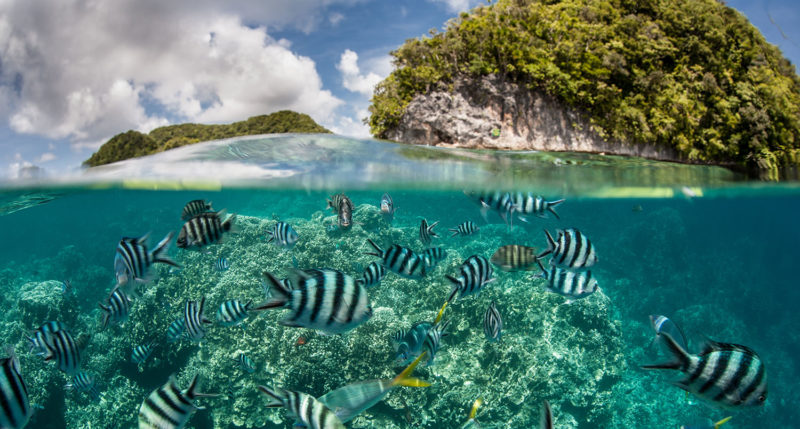

Alongside: sustainable clothing saving the ocean
The sea has suffered greatly in recent decades, and humans have accelerated this deterioration. According to the UN, the fashion industry is the second most polluting in the world, with more carbon emissions than all international flights and shipping combined. Alongside lands in the fashion industry to change the rules.
Alongside was born in Barcelona in 2020, at the hands of Guillem Alcalá, an entrepreneur, lover of the sea, with the aim of protecting and conserving the oceans.
Guillem has always had a great bond with the sea, which over the years has become even stronger. Holidays were always at sea, where he could dive, snorkel, surf, sail… do any activity in salt water. Destinations that were full of colours and marine life, but that over time were becoming grey corners, soulless and lifeless. We talked to him about the company he has created and his great commitment to the environment.
Brazil, the trip that changed everything
In February 2019, a trip to Brazil made a big impact on Guillem and left him in a state of shock. I had never seen so much plastic flooding the beaches on a route away from the big cities. Every day he slept in a different fishing village, and in the early hours he embarked with a fisherman to discover the best corners of the coast, to see where the marine life was. Thanks to this, he found that at all points along the coast in the more than 300 km he travelled, marine life had been disappearing, and the coral population had been halved in the last five or ten years.
Guillem did not understand how sea reefs, whose fishing was the main source of income for the population, could be dead. If those people only lived on the four coconuts they had, a couple of cassava crops, and the fishing of the day, why did they care so little for their resources? On the last day, in the taxi on the way to the airport, he was contemplating the Río Pinheiros in the centre of São Paulo: the river was coming down so full of plastic containers that he could barely see the water. And all that flowed directly into the sea.
Change your life to save the ocean
This impact led to the beginning of his research on the disappearance of marine reefs and the contamination of plastics when he returned from the voyage. He worked as a consultant, but as a lover of the sea, he felt obliged to do something to protect, conserve, and change this degrading situation. He could not stand idly by and let the seas die.
So in May 2019 he decided to quit his job, not knowing very well what the plan was, but knowing the goal: work to change this situation. Therefore, he decided to create a sustainable clothing brand where he could bring together a community of sea lovers and thus, together, manage to generate a positive impact and, at the same time, create awareness among other citizens. The marine problem has more and more visibility in the media and there are many organizations focused on eradicating this problem, but in early 2019, in Spain, little was heard about all this, and there was some ignorance about it.
This is how Alongside is born, and it does so by being part of the change in the textile industry through the production of ethical, sustainable, and lasting clothing;to reduce the impact of the carbon footprint on the environment. With a casual line of ecological and vegan t-shirts and sweatshirts, it aims to be a reference for all those lovers of the sea who want to do their bit and wear the brand values.
Sustainability, ethics, and the environment
- Organic cotton: Alongside’s clothes are made 100% with organic cotton, a natural fibre that requires less water than conventional cotton, without chemicals, and that favours crop rotation to maintain healthier and more fertile and moist soils. The waste generated in obtaining organic cotton is destined for the animal feed industry, thus reducing the footprint on the planet.

- Sustainable process: this cotton has the GOTS (Global Organics Textile Standards) certificate, the strictest in the field of organic fibre textiles, which ensures the traceability of the whole production chain from the cotton fields: the harvesting, the manufacture of the fibres, the assembly of the pieces, the final product before printing, and even the export of the finished parts.

- Recycled materials: for sweatshirts, they use 100% polyester (15% polyester, 85% organic cotton). Polyester is obtained from bottles and other recycled plastics, without generating waste and giving a second life to existing ones. That’s why they have the Global Recycled Standard label, which certifies that the materials used are recycled.

- 100% vegan: they also have the PETA certification, as they do not perform or commission any animal testing on ingredients, formulations, or finished products, and it is also a commitment to never do so. In fact, the clothes are made of 100% vegan materials. Nothing comes from animals.

- Guarantee work quality: they also have the Fair Wear Foundation certificate, a non-profit organization that works with brands, factories, unions, NGOs, and governments to ensure and improve the working conditions of workers.

More than a sustainable clothing brand
Alongside’s commitment to the environment is evident when you enter its website, where you are given the possibility to adopt a coral without even buying any product, since buying what is not needed is not sustainable. He tells us that they opted for coral crops because they are the heart of the sea, one of the most complex and rich ecosystems on the planet, and 25% of marine species live on them.
What would happen if 25% of all marine species disappeared? It would generate such an imbalance that it would end up with the remaining 75%. The bet is strong, as Alongside’s mission is very clear: to save the seas and oceans. That is why they have been the first brand in Spain in which, for the purchase of a product, a coral is planted.
Indonesia, epicentre of marine biodiversity
Guillem tells us that “in order for this to have the greatest possible impact, we chose Indonesia, in the Pacific, as it is in the well-known Coral Triangle, and brings together the world’s largest marine biodiversity. After weeks of research, we were able to contact a biologist with over twenty years of experience with corals and techniques for reproducing them. The confidence he conveyed to us by teaching his crops and the areas where he had been working during the past months made us start planting corals that same week, on March 7, 2020.”
With the adoption of coral, you get a certificate of adoption with the coordinates where the coral has been planted, and your name or that of the person you want to surprise with an original and supportive gift.
Maritime preservation from Catalonia to the world
In addition to combating the disappearance of coral reefs due to climate change and pollution of marine waters with coral plantations, they regularly organize beach cleanings open to everyone. The aim is to eliminate plastics and waste accumulated on the Catalan coasts, and create awareness to prevent new waste from ending up in the sea, as this is the cause of death of millions of marine species.
If we buy a sweatshirt, we will contribute a coral plant. If we buy a t-shirt, cap, or bag, we are supporting the initiative to clean up beaches and the seabed. And finally, if we decide to buy a piece of jewellery, we will collaborate with the RESCAP program, a pioneering program in recovery and conservation of the Gorgonians in Cap de Creus, to strengthen our commitment and love for the marine corners of our homeland.
Innovative initiatives like this exemplify that the future has only one path, and that is sustainability and awareness when it comes to consuming.
Leave a Reply
You must be logged in to post a comment.





Un projecte enormement inspirador el d’en Guillem. Marca el camí per molts/es emprenedors/es i consumidors/es.
Llàstima que la seva web no està en Català 🙁
Si Gabriel, un exemple a seguir! Ens veiem per La Plaça!
👍
Gràcies, Joan! Ens veiem per La Plaça!
Gran treball i poc conegut
Cert, són iniciatives que marquen tendència i necessàries. Gràcies